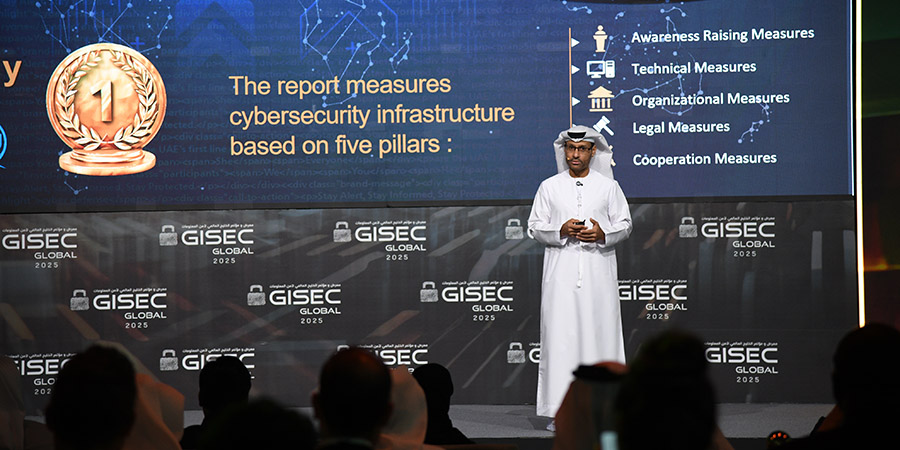During the opening day of GISEC 2025, H.E. Dr. Mohamed Al Kuwaiti, Head of Cybersecurity for the UAE Government, delivered a compelling keynote outlining the nation’s advanced cybersecurity strategy amid a rapidly evolving digital threat landscape. He emphasized how cybersecurity is no longer a back-end concern; it is now foundational to national security, innovation, and the UAE's ambition to be a global artificial intelligence (AI) powerhouse.
“Cybersecurity has become not only an integral part of everything we do, but also a core pillar of our leadership vision,” Dr. Al Kuwaiti told attendees.
The UAE is becoming an AI nation—and that nation needs help from all of us.
He emphasized that the UAE’s smart city initiatives, from Abu Dhabi to Dubai and beyond, require resilient digital infrastructure to ensure secure digital transformation. The nation is prioritizing the development of cyber-resilient systems across critical infrastructure sectors including energy, telecommunications, transportation, and healthcare.
“Our vision is to unify perspectives [and] build customized environments and resilient infrastructures across all entities to foster technology and collaboration,” he added.
Tackling the Triple Threat
Dr. Al Kuwaiti pointed out that the cyber threat landscape is evolving, emphasizing the UAE’s strategic focus on combating cybercrime, cyberterrorism, and cyberwarfare.
“We are focused on those three types of cyber threats… All of them touch [on] our national security and economic stability,” he said.
With over 200,000 cyberattacks recorded in a single day, ranging from phishing to distributed denial-of-service (DDoS) attacks, he underlined the urgent need for a proactive cybersecurity culture, supported by international cooperation and cutting-edge technologies.
AI, Quantum, and the Metaverse
Artificial intelligence emerged as a recurring theme throughout the keynote. “AI is becoming a critical tool for CISOs, supporting everything from reconnaissance to forensic analysis,” he noted.
He also spotlighted the growing role of post-quantum cryptography (PQC), AI-enhanced metaverse applications, and large language models (LLMs) in both offense and defense.
“Now, you rarely find mistakes in phishing emails. AI has evolved social engineering,” he warned, referencing ChatGPT and other LLM-driven phishing attempts.
Launching New Initiatives
Several key announcements were mentioned by Dr. Al Kuwaiti during the keynote, including:
- The National Information Assurance Platform, which aims to automate compliance across entities.
- An updated cyber policy framework (years in the making), which focuses on international collaboration and real-time threat response.
- The Crystal Ball Initiative, which is a global information-sharing platform developed in cooperation with 150+ countries and international bodies.
We are building a cybersecurity ecosystem that combines governance, innovation, defense, and partnerships.
A Call for Collective Action
Dr. Al Kuwaiti closed his keynote by reinforcing the importance of public-private partnerships and the role of academia and startups in advancing cybersecurity innovation. He highlighted the UAE’s incubator programs and welcomed the participation of unicorns and entrepreneurs in building the cyber defenses of the future.
“Our message, still and always, is to spread the cybersecurity culture; to have it as an integral part of people’s lifestyle,” he concluded.
We must continue to work together to secure our digital world.
Latest:
